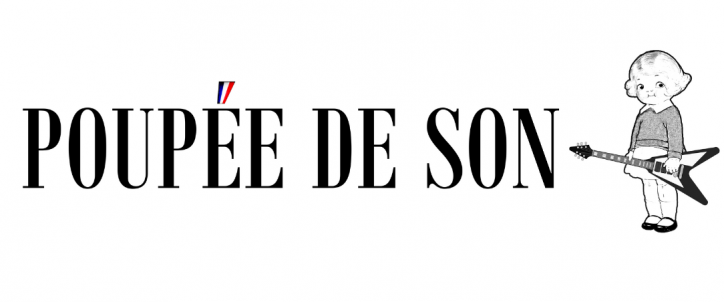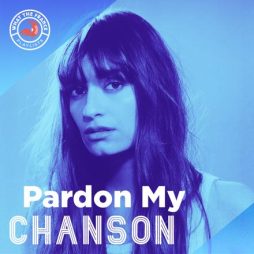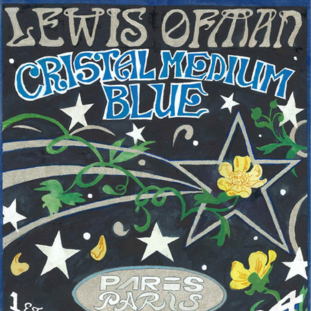
‘Poupée de Son’ programme on Radio Helsinki
The ‘Poupée de Son’ programme is a joint initiative from the Institut français de Finlande, Radio Helsinki and an independent journalist who is also a French teacher, Tatiana Järvenpää.
From 29th August and every Monday for 13 weeks, Radio Helsinki listeners are invited on an immersive journey into alternative French and francophone music, with a selection of current songs that range from indie rock to electro, via new wave, pop and rap. It will feature artists like La Femme, Requin Chagrin, Fishbach, Bonnie Banane, Ascendant Vierge, Mister Zguy, Marie Möör, Les Clopes, Bandit Bandit and many others. Every week it’s an opportunity to discover new releases and emerging artists that are shaping the French scene.
But ‘Poupée de Son’ is also an occasion for diving into the history of French chanson, from the pre-war period to the present day, via a 15-minute feature presented by the l’Institut français every Monday from 12h00 et 12h15 (Finnish time). While the first feature on 29th August was dedicated to the song ‘Poupée de Son’ – which has given the show its name – and its singer, France Gall, the next one will be dedicated to the pre-war period and the liberation of France, with reference to Charles Trenet, Mistinguett, Joséphine Baker and Maurice Chevalier and a focus on Edith Piaf. Every show will be look at a particular decade.
- The 50s arrive along with the invention of the long-playing record, the establishment of a number of radio stations that brought artists into people’s homes, and the emergence of a generation of brilliant and politically engaged singer-songwriters like Léo Ferré, Georges Brassens, Barbara, Jacques Brel and Juliette Gréco
- The 60s, which coincide with the first economic revolution of the record industry, with records becoming a genuinely commercial product. It’s also the ‘Yéyé’ era, in which a new audience are the same age as their idols. But it also signals, as May ’68 arrives, a turn to weightier and more overtly political subject matter and artists like Aznavour, Gilbert Bécaud and Serge Lama. The 60s are also the era of Claude François’ hit ‘Comme d’habitude’ which, once translated as ‘My Way’, became the most covered hit song in the world.
- The 70s get underway with the hippy era and songs promoting pacifism and love, promoting the idea that there are no more taboos, before disco arrives and the first discotheques open. But the French are still enamoured of the principles at the heart of French chanson: sophisticated lyrics and unruffled melodies The stars are Michel Delpech, Véronique Sanson, Michel Fugain and his Big Bazar, and the first collaborations between Souchon and Voulzy. Then in 1977, France wins its latest Eurovision song contest thanks to Marie Myriam and the song ‘L’oiseau et l’Enfant’.
- The 80s is the era of one-hit-wonders, of ‘Voyage-Voyage’ by Desireless, which is popular in Finland to this day, and ‘Born to Be Alive’ by Patrick Hernandez. But the 80s are also a period where a number of new artists stake a place for themselves within the world of French chanson: Jean-Jacques Goldman, Patrick Bruel, Renaud, Francis Cabrel, Mylène Farmer, les Rita Mitsouko and the band Téléphone, to name but a few.
- The 90s sees the emergence of new musical style like rap and the generation of what is dubbed by the media as the ‘new French scene’. It includes artists who might have remained outside the mainstream but whose success was aided by the passing of the ‘Toubon law’ in 1994 that imposed quotas for French-language song on French radio stations.
- The 2000s head down two different paths: on the one hand, hit musicals, and on the other reality shows which usher in new names like Jenifer, Nolwenn Leroy, Elodie Frégé, Olivia Ruiz, Christophe Willem, Julien Doré and Amandine Bourgeois.
- The 2010s are accompanied by a technological revolution that changes everything: streaming. From this point onward, everyone can be a DJ in their own home, and this new generation born with a smartphone their hands don’t hesitate to do so. Streaming also allows numerous artists to bypass record labels and radio and to gain notoriety via the new digital platforms. The French scene is more diverse than ever, and sees Daft Punk coexisting with Jul, Angèle and Stromae. The 2010s also see the rise of female singer-songwriters and producers, as an echo of the MeToo movement, which sees women speaking out to denounce sexism and abuse in the industry and claiming a bigger place for themselves, such as on festival line-ups.
‘Poupée de Son’ can be listened to live on the Radio Helsinki website www.radiohelsinki.fi every Monday from 10am to 12pm French time (with the IFF segment at 11am French time) and as a podcast. The ‘Poupée de Son’ playlist will feature tracks played on the programme, while the ‘Poupée de Cire’ playlist of songs featured in the ‘L’histoire de la chanson française’ segment will be available every week on the Institut français de Finlande’s Spotify profile as well as its website.

Pardon My Chanson
Sing along with to the latest French chanson hits made in France. Listen nowSee also
 Malted Milk | A new album to celebrate their 25-year career
Having started out as a blues duo before becoming an authentic soul band, French outfit Malted Milk continue to electrify the music scene with their c...
Release
Malted Milk | A new album to celebrate their 25-year career
Having started out as a blues duo before becoming an authentic soul band, French outfit Malted Milk continue to electrify the music scene with their c...
Release
 Lewis OfMan | A new album to mark his sensational growth!
Cristal Medium Blue, the latest album by unique synth-pop artist Lewis OfMan, marks a new step in the evolution of the Frenchman’s sound. At the ten...
Lewis OfMan | A new album to mark his sensational growth!
Cristal Medium Blue, the latest album by unique synth-pop artist Lewis OfMan, marks a new step in the evolution of the Frenchman’s sound. At the ten...